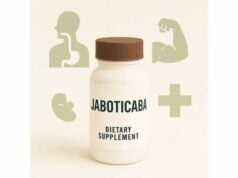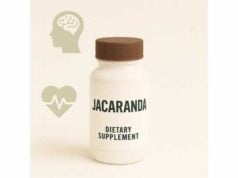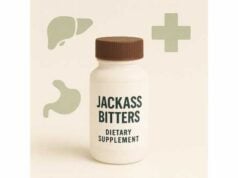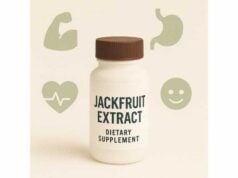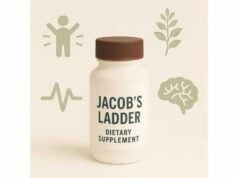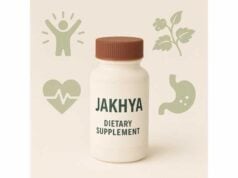
Jujube (Ziziphus jujuba), often called red date or Chinese date, has been eaten and used in traditional medicine for more than two millennia. Modern extracts concentrate the fruit’s polysaccharides, flavonoids, triterpenic acids, and vitamin C to deliver consistent potency in small amounts. People most often choose jujube fruit extract to support calmer nights, balanced mood, gentle immune tone, and everyday antioxidant needs. Research also explores roles in metabolic health, gut barrier integrity, and skin wellness, though human evidence varies by outcome and product type. This guide translates the science into plain language: what jujube fruit extract actually is (and how it differs from the better-known seed extract), how it appears to work, practical ways to use it, sensible dosage ranges drawn from food traditions and commercial standards, and who should skip or take extra care. Along the way, you’ll learn formulation details—like why extraction solvent and drying method matter—and the signs that a label is worth your trust.
Quick Summary
- Fruit extracts provide polysaccharides, polyphenols, and triterpenes that show antioxidant, anti-inflammatory, and immune-modulating activity in preclinical work.
- Sleep benefits are better documented for seed extracts; fruit extracts may still support calm by providing GABA-related and cAMP-linked compounds.
- Typical adult dosage: 250–1,000 mg/day of standardized fruit extract, or 5–15 g/day as dried fruit equivalent.
- Safety caveat: generally well tolerated as food-range intake; higher doses may cause GI upset or interact with sedatives or antihypertensives.
- Avoid if pregnant or breastfeeding without clinician guidance, if you have chronic low blood pressure, or if you are allergic to Rhamnaceae plants.
Table of Contents
- What is jujube fruit extract?
- Does it work: benefits and active compounds
- How to use it correctly day to day
- Dosage: how much and when
- Side effects, interactions, who should avoid
- Evidence: what science says now
What is jujube fruit extract?
Jujube fruit extract is a concentrated preparation from the fleshy fruit of Ziziphus jujuba Mill. The goal is to capture the fruit’s most relevant nutrients and phytochemicals—especially water-soluble polysaccharides, polyphenols (flavonoids and phenolic acids), triterpenic acids (e.g., ursolic/oleanolic acids), vitamin C, and small amounts of cAMP—into a reproducible form.
How it differs from other jujube products:
- Fruit vs seed: Many “sleep” products feature seed (Ziziphus jujuba var. spinosa) extracts rich in jujubosides and spinosin. Fruit extracts contain little to none of these saponins yet still provide calming, antioxidant, and immune-modulating compounds. When a label says “jujube extract,” confirm whether it’s fruit or seed.
- Extract vs dried fruit: Dried fruit is a whole-food source (fiber, vitamins, sugars) commonly eaten at 5–15 g/day. Extracts compress active constituents into hundreds of milligrams and can be standardized to specific markers (e.g., “≥20% polysaccharides” or “≥5% polyphenols”).
- Extraction method:
- Water or hydroalcoholic extraction emphasizes polysaccharides and polyphenols.
- Organic solvents (less common for food supplements) pull more triterpenes.
- Fermentation and enzymatic processing can increase certain components (e.g., GABA in seed materials), while drying method (freeze-drying vs oven/sun) strongly affects vitamin C and phenolic retention.
What a good label tells you:
- Botanical name (Ziziphus jujuba), plant part (fruit), extract ratio (e.g., 10:1), and standardized constituents (polysaccharides %, polyphenols %, or triterpenes %).
- Serving size in mg, daily servings, excipients, and allergen statements.
- Suggested use and safety notes (e.g., pregnancy, medications, bedtime timing).
Practical roles:
- Calm support and sleep readiness as part of an evening routine (especially when paired with good sleep hygiene).
- Everyday antioxidant and immune tone support in wellness stacks.
- Gentle digestive and skin wellness roles in traditional contexts, now explored with modern analytics.
Does it work: benefits and active compounds
The fruit’s activity reflects multiple compounds working together, rather than a single “magic bullet.” Below are the most consistent themes across modern analyses and preclinical models, with notes on how they translate to daily life.
Antioxidant capacity and redox balance
Jujube fruit is rich in polyphenols and vitamin C, with measurable DPPH/FRAP activity in lab assays. In animals and cells, extracts raise endogenous defenses (e.g., SOD, glutathione enzymes) and reduce markers of oxidative stress. In daily life, this suggests a role as a background antioxidant, similar to other polyphenol-dense fruits, not a replacement for clinical treatments.
Immune modulation and inflammatory tone
Polysaccharides from jujube fruit can shift cytokine patterns and support innate responses in preclinical work. Some studies show a down-tuning of NF-κB signaling and a gentler inflammatory profile. Practically, people use jujube as a wellness ingredient to keep inflammatory tone in check alongside diet and movement.
Calm, relaxation, and sleep readiness
The strongest human sleep data belong to seed extracts. However, fruit extracts still carry GABA-related compounds, cAMP, and calming polyphenols that may contribute to an evening relaxation effect—especially at higher standardizations of polysaccharides and when used with light-blocking and consistent bedtimes. For targeted insomnia, match your intent: fruit for general calm and wellness; seed for more direct hypnotic support.
Metabolic and gut support
Preclinical work associates fruit polysaccharides with improvements in glucose and lipid handling, maintenance of gut barrier integrity, and microbiome shifts toward short-chain fatty acid producers. Early human data with dried fruit point to modest benefits for insulin and lipid markers when part of broader diet changes. Translational takeaway: jujube extract can complement a metabolic plan—dietary fiber, protein distribution, daylight exposure, and training remain primary.
Skin and oral wellness
Phenolic-rich extracts show antimicrobial and wound-support signals in lab models, and topical/cosmetic uses are growing (e.g., serums with jujube polyphenols or triterpenes). As a dietary extract, benefits here are indirect (systemic antioxidant support) rather than targeted dermatology therapy.
What not to expect
High-level claims such as curing cancer, reversing chronic disease, or replacing prescription sleep medications are unsupported. Treat jujube fruit extract as a nutrient-dense adjunct to healthy routines, not a stand-alone therapy.
How to use it correctly day to day
Match the product to your goal
- General wellness / antioxidant support: Choose a fruit extract standardized to polysaccharides (≥20–40%) or polyphenols (≥5–20%).
- Evening calm / sleep readiness: Fruit extract can help as part of a bedtime stack (magnesium glycinate, light hygiene, wind-down routine), but if your priority is sleep, consider formulations that clearly state “seed extract” or blends that combine fruit and seed—with clinician guidance if you take sedatives.
Timing and stacking
- Morning to midday for metabolic or immune-tone support.
- Late afternoon to evening for calm support; combine with breath work, dim light, and screens-off.
- Pairs well with vitamin C–rich foods, green or rooibos tea during the day, and protein-anchored meals to stabilize glucose.
Reading a label, fast
- Verify fruit vs seed. 2) Check extract ratio (e.g., 10:1). 3) Identify standardization (polysaccharides %, polyphenols %, or triterpenes %). 4) Confirm serving size (mg), capsules per day, and excipients (avoid unnecessary fillers if sensitive).
Tip: A transparent label will list botanical name, part, standard, and solvent (water or hydroalcoholic).
What quality looks like
- Identity testing (botanical authentication), contaminant screening (heavy metals, pesticides), and microbial counts.
- Batch certificates of analysis on request.
- Stability measures that protect vitamin C and phenolics: freeze-drying or low-temperature drying preserves more actives than high-heat or sun drying.
Real-world examples
- Wellness stack: 500 mg jujube fruit extract (≥20% polysaccharides) with breakfast; add 250–500 mg late afternoon during higher stress weeks.
- Evening routine: 250–500 mg fruit extract after dinner, plus non-pharmacologic sleep hygiene; if inadequate and appropriate, discuss seed extract options with a clinician.
When to talk to a clinician first
- Persistent insomnia, diagnosed anxiety/depression, pregnancy or breastfeeding, chronic hypotension, challenging medication regimens (sedatives, antihypertensives, antidiabetics), or planned surgery.
Dosage: how much and when
There is no single clinically validated human dose for fruit extract across all outcomes. The ranges below reflect food tradition, commercial standards, and tolerability seen in practice.
Adults (general wellness)
- Extract: 250–1,000 mg/day of standardized fruit extract, taken in 1–2 divided servings. Start low for one week, then adjust.
- Dried fruit equivalent: 5–15 g/day (about 3–8 pieces depending on size) as food or added to porridge/tea.
- Tea/decoction: Simmer 5–12 g dried fruit for 10–15 minutes; drink once daily. This is whole-fruit intake, not an extract dose.
Evening calm and sleep readiness
- Fruit extract alone: 250–500 mg 60–90 minutes before bed for 1–2 weeks, then reassess. For targeted insomnia, a seed extract may be more appropriate—confirm the plant part on the label and discuss with a professional if you use sedatives or have sleep apnea.
Metabolic support
- Fruit extract: 500–1,000 mg/day with meals for 8–12 weeks, alongside diet and exercise protocols. Monitor personal responses (energy, digestion, glucose if you track).
Older adults
- Start at the low end (e.g., 250 mg/day), watch for blood pressure dips or daytime sleepiness, and increase only if needed.
What not to do
- Do not assume higher equals better: large, prolonged doses can cause GI upset and may potentiate sedatives.
- Do not use fruit extract as a solo treatment for medical conditions (e.g., diabetes, hypertension, major depression, chronic insomnia).
Children and adolescents
- Treat as food (small amounts of dried fruit in recipes) unless a pediatric clinician recommends a product and dose. Extracts are rarely necessary.
Form and formulation notes
- Standardizations: Polysaccharides (e.g., ≥20–40%) or polyphenols (e.g., ≥5–20%) are common.
- Capsules vs powders: Powders mix into smoothies/porridge; capsules simplify dose control.
- Blends: Jujube fruit often appears in evening blends with the seed or botanicals like chamomile and passionflower; read plant parts and totals carefully.
Tracking benefits
- Pick one outcome (sleep onset time, night awakenings, calm during evening) and track for 2–3 weeks. If no clear change, reconsider dose, timing, or product type—often by confirming whether you actually need seed extract instead.
Side effects, interactions, who should avoid
Typical tolerability
- Common: Mild GI upset, gas, or loose stools at higher doses due to polysaccharides and natural sugars when using whole fruit.
- Occasional: Daytime drowsiness if taken late morning/afternoon in sensitive users; headache when combined with multiple calming herbs.
- Uncommon: Allergic reactions (itching, rash) in those sensitive to Rhamnaceae plants.
Potential interactions
- Sedatives, sleep medications, antihistamines: Fruit is gentler than seed, but bedtime doses may add to sedative effects; avoid driving if drowsy.
- Antihypertensives: If you run low-normal blood pressure, monitor for lightheadedness, especially with evening dosing.
- Antidiabetics: Whole dried fruit contains natural sugars; track glucose if relevant. Fruit extracts with minimal sugars are less likely to impact glycemia, but modest effects on insulin sensitivity are possible.
Who should avoid or seek advice first
- Pregnant or breastfeeding: Data are limited; treat as food only (small amounts of dried fruit) unless your clinician approves an extract.
- Surgery within 1–2 weeks: Hold supplements to reduce unpredictability with anesthesia and recovery.
- Chronic hypotension or orthostatic symptoms: Prefer morning dosing or avoid entirely.
- Severe insomnia treated with prescription drugs, sleep apnea, or major psychiatric conditions: Coordinate with your prescriber to avoid duplicative sedation or masking symptoms.
When to stop
- New rash, swelling, wheeze, or severe GI pain.
- Persistent daytime sedation or blood pressure drops.
- No benefit after 3 weeks at an appropriate dose—reassess goals and product choice (fruit vs seed).
Safe use checklist
- Verify plant part and standardization.
- Start with one jujube product at a time.
- Keep a simple sleep or mood log if that’s your goal.
- Store tightly closed, away from heat and light; use before the expiry date.
Evidence: what science says now
Chemistry and composition
Modern reviews characterize jujube fruit as rich in polysaccharides, polyphenols, triterpenic acids, vitamin C, and cAMP. The exact profile varies with cultivar, ripeness, growing conditions, and critically, drying method: freeze-drying preserves more vitamin C and phenolics than high-temperature oven or sun drying. These processing differences explain why two “500 mg” products can perform differently.
Mechanisms consistent across studies
- Antioxidant effects (direct scavenging and upregulation of endogenous defenses).
- Anti-inflammatory/immune modulation, including impacts on NF-κB-linked gene expression in models.
- Neurobeneficial signals: enhanced neurotrophic factor expression, protection against oxidative insults, and GABA-related calming pathways (stronger for seed extracts but present in the broader jujube matrix).
- Metabolic support in animals: improved insulin sensitivity markers, lipid profiles, and gut barrier features with polysaccharide-rich fractions.
Human data at a glance
- Fruit as food: Dried jujube integrated in diets shows modest improvements in some cardiometabolic markers in emerging studies; effects are additive to diet quality.
- Sleep and calm: The clearest human outcomes are with seed extracts in specific populations, with growing preclinical support for fermented seed products increasing GABA content. Fruit extracts likely support relaxation rather than act as hypnotics on their own.
- Safety: As a food, jujube has a long history of safe use. Extracts are well tolerated in short trials and observational reports; adverse events tend to be mild and gastrointestinal.
What’s missing
- Large, well-controlled human trials using clearly characterized fruit extracts with standardized markers and validated outcomes (sleep latency, HbA1c, lipid panels, inflammatory biomarkers).
- Head-to-head studies comparing fruit vs seed for sleep in typical adults.
- Dose-response work to define the smallest effective daily amount for specific goals.
Bottom line
Jujube fruit extract is a credible wellness ingredient with good tolerability and mechanistic support for redox balance, gentle immune modulation, and calm readiness. For targeted insomnia, seed extracts hold the stronger data. If you choose a fruit extract, emphasize transparent labeling, standardization, and consistent routines, and evaluate results over 2–3 weeks.
References
- Research advances in bioactive components and health benefits of jujube (Ziziphus jujuba Mill.) fruit 2021 (Systematic Review)
- A Review of Edible Jujube, the Ziziphus jujuba Fruit: A Heath Food Supplement for Anemia Prevalence 2020 (Review)
- Sleep-Enhancing Effect of Water Extract from Jujube (Zizyphus jujuba Mill.) Seeds Fermented by Lactobacillus brevis L32 2023 (Preclinical)
- Phytochemical, pharmacological, pharmacokinetic and toxicological advances of Ziziphi Spinosae Semen 2024 (Review)
- Preservation of Phenols, Antioxidant Activity, and Cyclic Adenosine Monophosphate in Jujube (Ziziphus jujuba Mill.) Fruits with Different Drying Methods 2023
Disclaimer
This guide is educational and does not replace personalized medical advice, diagnosis, or treatment. Talk with a qualified healthcare professional before starting any supplement, especially if you are pregnant or breastfeeding, have chronic medical conditions, or take prescription medications. Do not use jujube products to delay or replace care for sleep disorders, metabolic disease, or mental health concerns. If you experience an allergic reaction, severe digestive upset, marked drowsiness, or lightheadedness, stop use and seek medical care.
If this article helped you, consider sharing it on Facebook, X (formerly Twitter), or your favorite platform, and follow us for more evidence-informed wellness guides. Your support helps us keep creating high-quality content.

